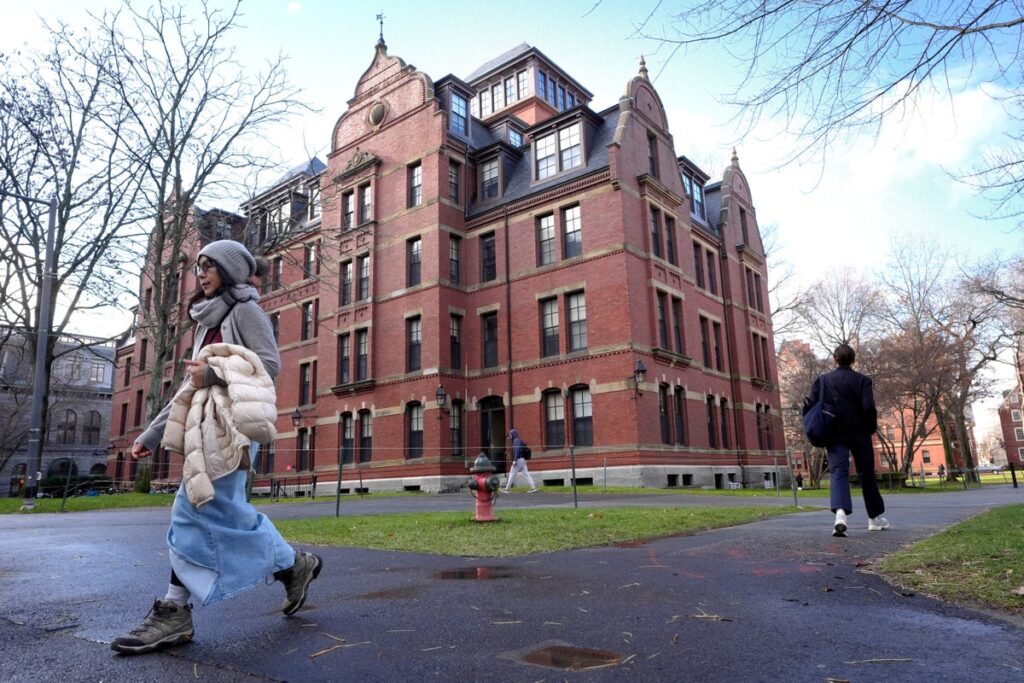U.S. Government Initiates Enhanced Scrutiny of Visa Applicants’ Social Media Profiles Amid Rising Tensions with Harvard University
In a move reflecting escalating tensions between federal authorities and prestigious academic institutions, U.S. officials are now authorized to scrutinize the social media activity of visa applicants associated with Harvard University, especially those involved in research, employment, or academic collaborations. This development marks a significant shift in the ongoing conflict between the Trump administration and the Ivy League school, highlighting concerns over ideological biases and security measures.
New Policy Aims to Identify Antisemitic and Violent Tendencies
On Friday, a directive signed by Secretary of State Marco Rubio was circulated to U.S. diplomatic missions worldwide. The document, obtained by The Associated Press, criticizes Harvard for allegedly neglecting to condemn off-campus violence and antisemitic incidents. It states that the new vetting process will assist consular officers in flagging applicants with histories of such behaviors, thereby influencing their eligibility for U.S. visas under immigration laws.
Implementation and Scope of the Screening Procedure
This policy has been disseminated to all U.S. embassies and consulates, with immediate effect. Initially conceived as a pilot program, it has the potential for broader application in the future, depending on its outcomes. The initiative underscores a more rigorous approach to evaluating the online presence of visa seekers, especially those linked to academic institutions like Harvard.
Harvard’s Response and Broader Political Context
Harvard University has yet to publicly comment on the new measures. Historically, the institution has openly challenged White House directives aimed at reforming elite colleges, which the administration has accused of harboring liberal and antisemitic sentiments. This ongoing dispute has led to significant financial repercussions, including the withdrawal of $2.6 billion in federal funding, compelling Harvard to fund many research projects independently. Additionally, President Donald Trump has publicly expressed intentions to revoke Harvard’s tax-exempt status.
Legal Battles and International Student Impact
Recently, Harvard filed a lawsuit against the federal government after the Department of Homeland Security, led by Secretary Kristi Noem, revoked its authorization to host international students on campus in Cambridge, Massachusetts. A federal court has since temporarily halted this action. Notably, over 25% of Harvard’s students at the Cambridge campus are international, representing more than 100 countries, with most being graduate students engaged in advanced research and studies.
Enhanced Visa Screening and Social Media Monitoring
This week, the Department of State paused scheduling new visa interviews for prospective international students, citing plans to intensify scrutiny of their social media activity. It remains uncertain whether this pause has been lifted. The new policy expands upon previous efforts by the Trump administration, which already included social media review as part of visa vetting, a practice that continued under President Biden’s administration.
Guidelines for Social Media Evaluation
According to the directive, officials are instructed to assess whether applicants lack an online presence or have private social media accounts, which could suggest evasiveness or an attempt to conceal information. If such behaviors cast doubt on an applicant’s credibility, officers are advised to deny the visa application. Furthermore, the policy encourages officials to conduct comprehensive investigations into an individual’s digital footprint, extending beyond mere social media profiles to include broader online activities.
Implications for Academic and International Communities
This intensified scrutiny raises concerns within academic circles, particularly regarding the impact on international students and researchers who rely on U.S. institutions for their education and work. As the U.S. continues to tighten its visa policies, universities like Harvard face increased pressure to navigate the complex intersection of national security, political ideology, and academic freedom. The evolving landscape underscores the importance of transparency and adaptability for students and scholars worldwide seeking opportunities in the United States.

